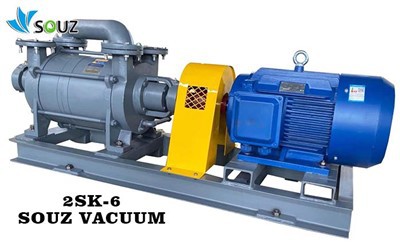What happens when vacuum pump fails?

What happens when vacuum pump fails?
A failing vacuum pump can lead to a range of issues, including decreased vacuum pressure, increased noise and vibration, overheating, and potential leaks. In vehicles, this can result in reduced braking power and even total brake failure. In industrial settings, a vacuum pump failure can cause production inefficiencies, drops in product quality, and wasted energy.
Here’s a more detailed breakdown:
In Vehicles:
-
Reduced braking power:Vacuum pumps assist with braking. A failing pump can lead to unboosted brake pressure, making braking more difficult.
-
Loss of braking support:In some vehicles, like older Mercedes diesels, a failed vacuum pump can also impact the engine’s ability to shut off.
-
Turbocharger issues:In turbocharged engines, vacuum is crucial for controlling boost. A faulty vacuum pump can lead to a loss of turbocharger function, making the engine feel sluggish.
In Industrial Settings:
- Insufficient vacuum pressure: The pump may be unable to maintain the required vacuum level, impacting the process it’s supporting.
- Increased noise and vibration: These can indicate mechanical problems or component wear within the pump.
- Overheating: This could stem from various issues, including motor problems or inadequate ventilation.
- Leaks: Leaks can disrupt the vacuum and lead to inefficiencies.
- Low efficiency: The pump might require more energy to maintain vacuum or may need to run continuously.
- Fluctuating vacuum levels: This can indicate leaks or malfunctioning parts.
- Power loss: Fluctuations or cuts in power can indicate electrical problems or motor issues.
In General:
- Extended processing times: A failing pump can slow down or halt processes that rely on vacuum.
- Malfunctioning equipment: Vacuum pumps are used in various systems, and their failure can disrupt those systems.
- Potential for flooding or water damage: In some applications, pump failure can lead to flooding.
To prevent or mitigate vacuum pump failure:
- Regular maintenance: This includes checking for leaks, lubricating moving parts, and ensuring proper ventilation.
- Proper installation: Ensure the pump is correctly installed and aligned.
- Monitoring: Keep an eye on the pump’s performance and look for warning signs like increased noise, overheating, or leaks.
- Power supply checks: Ensure a stable and adequate power supply.
Can a vacuum pump run continuously?
What happens when vacuum pump fails?
